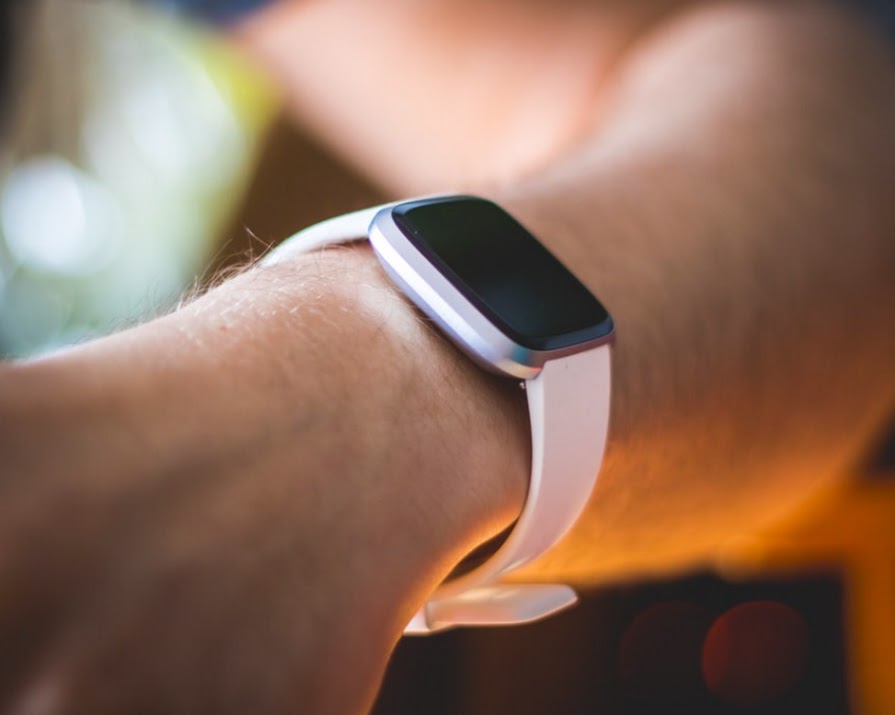
By Amanda Cassidy
01st Nov 2019
01st Nov 2019
Google announced today that it will buy the fitness technology firm Fitbit for over 2 billion dollars. But is the allure of this transaction based around the wearable health market, or just a neat way to collect more data? Amanda Cassidy reports
I shouldn’t have looked but I couldn’t help myself. I was reviewing my location data on Google and already I was shocked at what an astoundingly accurate picture of my life that anyone with this data could form about my life.
Without going into too much detail, my location history painted me as, well, me – a busy mum of three, who occasionally gets her nails done, goes to the gym, buys a lot of coffee (a LOT) and who works part-time. Apparently, I also enjoy going out for wine with the girls, and I seem to need to visit Zara frequently.
In short, I’ve exposed myself all over this town as the easy-to-market person – an advertisers dream, a branding hussy.
Privacy settings on, I disabled my location history and then quickly reinable them when I need Google Maps ten minutes later.
Stupid brain.
Data
I now have a FitBit, which means my range of activity, from my sleeping habits to my heart rate are also harvested.
Not so quirky now, I mutter to myself, thinking of the people in the data centre laughing as they clock my average running speed as I drag myself round the block, stopping for croissants.
The acquisition of FitBit by the internet giant google doesn’t exactly work like that. But there are legitimate privacy concerns that will need to be untangled first.
But Google’s track record on handling data has been under scrutiny in the past.
There had been rumours for a while that Google wanted to enter the fast-growing market for fitness trackers and smartwatches. The synergy is obvious, the commercial appeal clear. But Google’s track record on handling data has been under scrutiny in the past. Healthcare data is particularly sensitive given the potential for sinister data leaks and the implications.
Trust
Already the firms are aware that it is the data side of things that might scuper plans which are likely to be dragged out until 2020. In the announcement today they reassured legislators and consumers that “consumer trust is paramount to Fitbit. Strong privacy and security guidelines have been part of Fitbit’s DNA since day one, and this will not change.
Fitbit will continue to put users in control of their data and will remain transparent about the data it collects and why. The company never sells personal information, and Fitbit health and wellness data will not be used for Google ads”.
Risks
Good intentions don’t always mean nothing bad will happen as we’ve seen in the past from large enterprise controlling a great deal of information.
The risks here, if combined, data from various different elements (smartphone, smartwatch, location, camera, apps, wearables, can paint an elaborately detailed and more importantly, intimate pictures of people’s activities (do you wear your FitBit to bed on those “early nights”?) behaviours and routines.
In the wrong hands, this amount of information about your personal life is unthinkable.
This type of information so finely collated can reveal a lot of data about a person and what they might be vulnerable to when it comes to marketing.
Of course, you might find this hugely helpful in a personal shopping experience type of way, but from where I stand this is more of a mass yet personalised manipulation of sorts that can quickly make your world very small.
Free choice has the potential be distorted. In the wrong hands, this amount of information about your personal life is unthinkable.
FitBit CEO James Parks said today that “with Google’s resources and global platform, Fitbit will be able to accelerate innovation in the wearables category, scale faster, and make health even more accessible to everyone. I could not be more excited for what lies ahead.”
With health the focus, and such a lean from legislators about potential missteps, the way ahead remains to be seen.
But this cynic will be taking extra precautions to muddy the data-waters; Location history Off. Microphone Off, Camera Off, personalised ads Off, WhatsApp….who am I kidding, nobody can live without that.
Information is power – a statement more true today than ever before.
Read more: Facial technology: Does it mark the death of privacy as we know it?
Read more: The hidden dangers of YouTube























